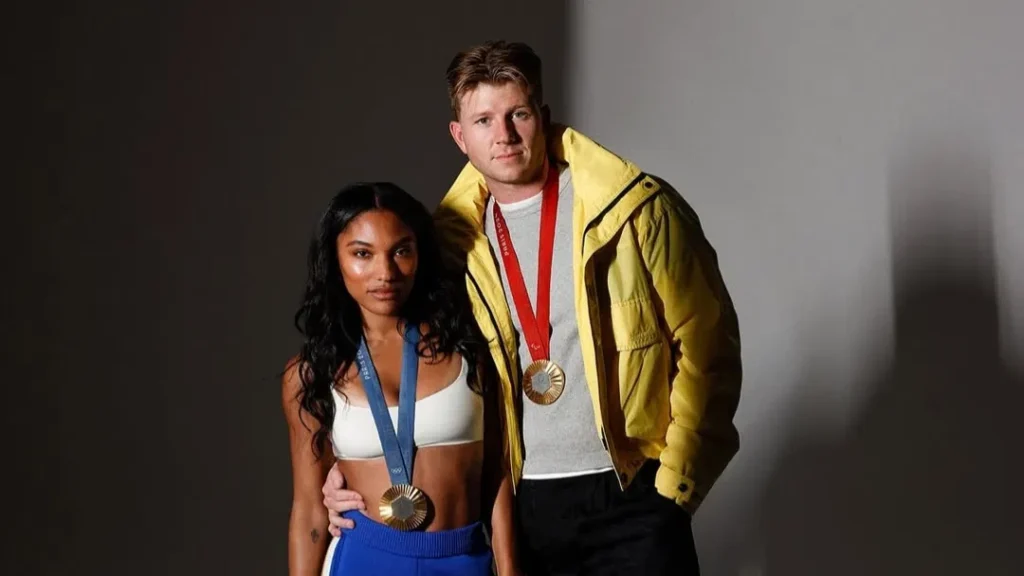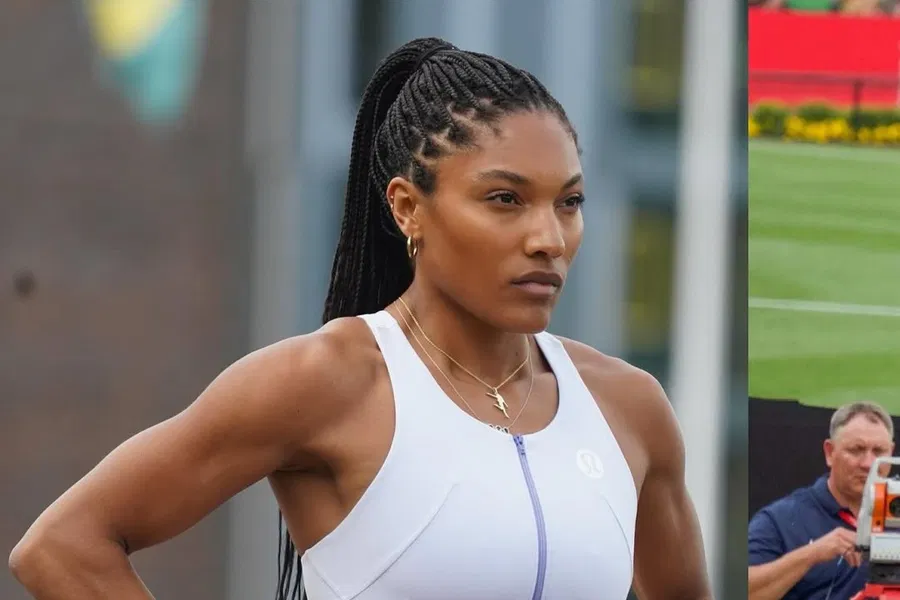Track and field has long struggled to claim its rightful place in mainstream sports media, and Tara Davis-Woodhall is emerging as one of the sport’s most outspoken advocates for change.
At the Variety Sports Culture Happy Hour hosted by Uber Advertising during the Cannes Lions Festival of Creativity on June 17, Davis-Woodhall took center stage in a candid panel discussion moderated by Cynthia Littleton, Variety’s co-editor-in-chief.
Alongside Olympic gymnast Jordan Chiles and executives from the NBA, Uber, and American Express, the 2024 Olympic long jump gold medalist tackled one of track and field’s deepest-rooted issues.
The Fight for Visibility
Davis-Woodhall highlighted the glaring disparity in coverage when compared to other sports. Despite an increasing number of media outlets competing for sports rights, track and field remains sidelined.
She illustrated this with a striking example, when Shelly-Ann Fraser-Pryce, a three-time Olympic champion, opened her 2024 season, there was no official broadcast. Fans were left scrambling, with one eventually streaming the race on Instagram Live.
“It’s really hard to find clips of track and field,” Davis-Woodhall admitted to Variety itself.
As a result, she and her husband, Paralympian Hunter Woodhall, have resorted to hiring their own videographers to capture their meets and training sessions.
“We have to bring our videographers to come film and actually make my and Hunter’s jumps and running a little bit more sexy. So it can be appealing to the naked eye for someone who’s not a track fan,” she explained.
The couple has since built a strong online following, frequently sharing their athletic and personal journeys across social media. Their engaging content has even caught the attention of Usain Bolt, who confessed during an interaction that their videos regularly appear on his feed, a nod to their growing influence in digital spaces.
An Age-Old Problem

Davis-Woodhall has consistently pointed out the steep financial demands of competing at an elite level in track and field. From travel costs, particularly for meets in Europe, to entry fees and accommodation, the expenses quickly pile up, often outweighing the prize money.
“This sport is expensive. Why do we have to go all the way to Europe, spend all this money, and barely get a dime when we come to the States?” she questioned in a 2024 interview as quoted by Essentially Sports.
Despite being an Olympic champion and having endorsements with brands like Nike, Davis-Woodhall emphasized that many athletes in field events operate without consistent sponsorships, forcing them to fund their careers out of pocket.
Her husband, Hunter, shared a similar reality. Despite earning a Paralympic medal, his bonus amounted to just $37,500, a figure that falls well short of covering long-term expenses. Together, the duo has been vocal about the need for financial reform and better infrastructure for track and field athletes.
As track and field edges closer to major championships and the Paris 2025 World Athletics Championships, voices like Davis-Woodhall’s are more crucial than ever in demanding that the sport finally gets the spotlight it deserves.


